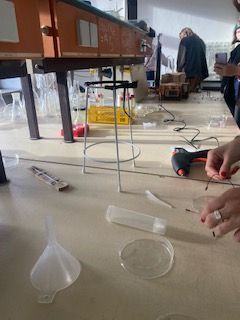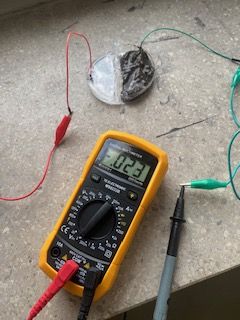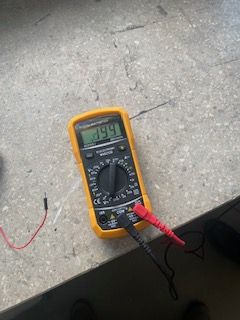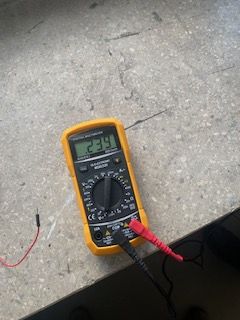> first we made Agar Agar by mixing 1.78grams of Agar Agar with hot water in a glass container, through shaking it, it became more solid over time. > we pured the mixture into a plastic straw, let it cool off and then cut the straw into sections to get long solid agar agar pieces. > next we prepared the petri dish for the experiment: placing the solid agar agar in the middle. Using hot glue and pouring diagonal line over agar agar piece to create a wall > now the petri dish has two seperate sides with an agar agar bridge in the middle > we then glued a cable on each side that sticks out of the petri dish > then we placed assembled mudd on one side of petri dish over the glued cable and water on the other > we made sure it contracts the agar agar bridge in the middle > the microbial fuel cell is created > last step to confirm the electricity flow, we connected claw clips from a digital multimeter to the cables that stick out the petri dish and observed the electricity outcome > it ranged from 0.012 - 0.300 volt
Bacterial battery : Electricity can be founded even from bacteria in mud. At the beginning, the volume of the electricity from bacteria was not that high and not that stable (It was almost only 0.012). But as time goes by, it became higher. About 3weeks later i measured the volume of the electricity again and it was about 0.2 and quiet stable. And still it is alive! :)
Even a month later, it still alive and I can measure the electricity. :)
Question : when the mud dried out, will the bacteria also die??






